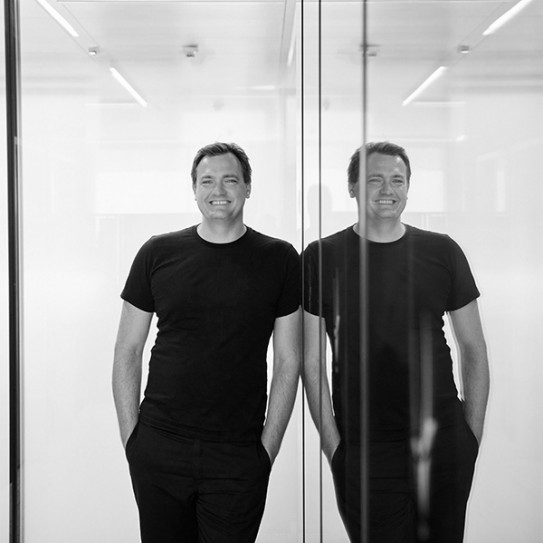
Black Friday 2022: Has Black Friday had its day?
Has Black Friday had its day? Or are predictions of the UK’s first drop in online sales during the past eight years premature? Are they, perhaps, just a sign of the current economic crisis?
After several COVID-hit years, retailers had hoped that 2022 might bring a period of uninterrupted business and stability.
Sadly, energy price rises, inflation and a cost-of-living squeeze across the globe has led to many consumers looking to tighten their belts at this crucial time of year for sales.
Despite the pandemic uncertainty, total UK sales over the Black Friday weekend in 2021 went up to £9.42 billion from £7.95 billion the year before. Online accounted for nearly three quarters of this, at £5.74 billion.
This year, consumers are expected to spend around £8.71 billion over the weekend, with £4.81 billion spent online.
While this is obviously a drop, it’s not all doom and gloom. This year’s forecast still represents the second highest sales total, as well as respective online and bricks and mortar sales, in the past eight years.
And some predictions believe sales will be up from last year – with PwC estimating that the average spend will be around £238 and sales up £500 million from 2021, as consumers shop for electricals, fashion and early Christmas stocking fillers.
SQLI spoke to some of its partners and experts to get some last-minute tips and to find out what their expectations are for this Black Friday and its future.
While Black Friday is already upon us and most e-Commerce businesses and digital brands have their strategies firmly in place, there is always time for a few tweaks.
What are your last-minute tips for Black Friday?
Jonty Sutton, CEO SQLI UK
The issues that pop up for brands on Black Friday often highlight a lack of technical hygiene, so to speak. These are things that occur around increased scale and demand and so it’s about ensuring that databases and servers, as well as the whole infrastructure, are being managed properly.
Brands often put too much pressure on their systems and that's often where issues, such as slowness or their sites struggling to cope, will come from.
Transparency is always the key if there are issues or challenges because of the increased volume – just let customers know what is happening! Put a message on your site. Make your customers aware of why the site is struggling or if things are going to take longer to purchase. The customer experience and customer service are the most important things when it comes to retaining customers in the long-term, so good, clear communication is vital.

Alex Graf, Spryker Founder and CEO
Lots of companies are sitting there waiting for Black Friday. But they don’t make any money from it, or not a great deal, in many cases.
Three years ago, Black Friday and discount codes were still a cool innovation. Now, customers and the press aren’t that interested, they are like ‘what kind of story can I create around Black Friday,’ maybe bundling products together over a couple of weeks, but that’s about it.
For some businesses, Black Friday doesn’t make sense. You don't want to have an extra 100 people in your warehouse just to sell all your older stuff over a couple of days. You're not earning any money doing this. You need to flatten this out, across the year.
Not enough businesses innovate and that’s especially true around Black Friday. What are your propositions or how do you catch customers more? How do you get them to come to your shop? How do you incentivize them to not go to a discount website?
I’ve stolen this from the retail entrepreneur Gary Vaynerchuk, but it’s true: “innovate or die.” It’s what a lot of digital retailers are missing. They are stuck following everyone else and today, it’s not enough. Do something different, there’s still time.

Colin Neil, Adyen Managing Director UK
Our research found that 67 per cent of UK consumers won’t return if they’ve had a bad experience either in store or online. That means you’ve got one shot to get it right. So, whether customers pay online or in-person, the process should be smooth and their preferences met.
Online, make it clear which payment methods you accept. It might even be worth displaying payment options earlier in the process.
In store, mobile point of sale terminals (mPOS) can help prevent queues during busy times. On top of that, next-gen terminals allow for multiple functions to be managed from a single smartphone-sized device, as a Molton Brown spokesperson told us:
“I believe mobile point of sale will do far better than the standalone units, mainly because of the feedback I've received from cashiers in the store. The ability for us to integrate this into one single solution while keeping it simple for the store staff is really going to drive this initiative. It gives that luxury feel and ease of use, which is important because Molton Brown is very much about luxury.”
Of course, regardless of channel, consumers today expect the same flexibility across every touch-point. Your channels need to complement one another, so focus on harnessing their specific strengths.

Gulshan Beejan, SQLI DevOps and Support Delivery Manager
From a technical point of view, we are normally preparing for Black Friday months in advance.
We like to know what to expect from brands. They have to tell us their plans, who they are targeting and when the email campaigns are going out, so we can prepare their platforms for all eventualities. So, for instance, do we need to upscale their servers to cater for any extra customers they are expecting? During Black Friday and the surrounding days, we are monitoring our partners’ sites constantly, to ensure nothing unexpected occurs.
Brands and businesses need to fully understand what their platform is able to do. What volumes it can run on. Testing before the day is essential. My advice is to learn what your site can do and gear all advertising and marketing campaigns around this, but aim to do this over the whole of Black Friday, or even the days and weeks around it. Try not to send too many people onto the platform in one single hour, for example.
It’s about planning and staggering campaigns to ensure that the peak is never reached, so you don’t cause yourselves any issues.
If you’ve got 10,000 products to sell, there’s also no point trying to get 50,000 people jumping onto your site trying to get the discount in an hour, you need to adjust your campaigns to ensure people aren’t left upset and that the site doesn’t crash from an unsuitable volume of people going on.

What are your expectations for Black Friday this year?
Colin Neil, Adyen Managing Director UK
The past couple of years have thrown the Peak Season playbook out of the window and we don’t expect this year to be any different. We’ve already seen that retailers have launched promotions early this year (see: Christmas in October) and our platform data confirms this with a 43 per cent year-on-year increase in retail sales volume in October. This points to a fluidity when it comes to the promotion calendar; it’s not so much about key dates as seizing opportunities and taking a more strategic approach to discounts, as Fat Face explained in our Peak Performers Guide:
“Costs have risen across the board and a lot of retailers are trying hard to maintain prices and not pass on costs to customers. But what's not yet layered on is all those extra cost pressures facing customers this year. So how is your pricing architecture going to change? How can it adapt? You need to be more flexible with your promotion calendar. Where you might have historically done blanket discounts, you should retain the flexibility to target discounts based on different customer segments. While it's going be tough for everyone, it's going to be even tougher for some.”
Jonty Sutton, CEO SQLI UK
I think as we've seen over the last few years, Black Friday is becoming a less severe sales spike or event. It's becoming much more normalised and so not such a big event across the Black Friday weekend. A few years ago, it was literally midnight-to-midnight carnage.
It's still a big day, but it’s more of a period as opposed to a single day. I think we'll see increased sales, but normalised a little bit more across the lead up to Black Friday and then obviously Cyber Monday - and we’ll find it’s more about the whole period, as opposed to just the single day.
Alex Graf, Spryker Founder and CEO
Having a limited time to make a deal used to be a huge thing. But now there are more places to buy the same things, so people aren’t prepared to wait for Black Friday anymore.
Consumers who are dependent on prices will either shop around or wait until January. I’m still expecting to see some brands record big sales, but it will be the ones that have done something different or publicised really significant discounts.
Gulshan Beejan, SQLI Devops and Support Delivery Manager
I think we are going to see more customers taking part and higher sales this year as we’ve been seeing a similar pattern over the past two weeks, already.
We have seen a lot of earlier discounts and bonuses than usual, which means some brands want to get ahead of the rush, but also, that they are trying not to put their business under any unnecessary pressure. So, I wouldn’t be surprised to see record sales again this year.
What do you think the future of Black Friday looks like?
Alex Graf, Spryker Founder and CEO
I don’t think it will ever be as big as it once was. Brands now have to think about being innovative through the whole year, not just for these sales events.
Black Friday is now like the end-of-season sales in the brick-and-mortar stores where they put up big sales discount signs outside and inside the store.
When you walk down the street or in these stores today, you often don't even see these sales banners anymore. They’re not releasing the endorphins in your brain as they once did, you’ve become desensitised to them.
I don’t think it will disappear, but it’s nothing special anymore. It won’t be like the famous Black Friday it once was.
Colin Neil, Adyen Managing Director UK
With a lot of uncertainty over the years, it's clearer now more than ever that brands need to re-evaluate peak. It isn’t just people changing; circumstances, environments, and costs are also in a constant state of flux right now
So, it’s important businesses adapt their peak planning to the current needs of their customers. This doesn’t mean overhauling the entire strategy, just ensuring there are mechanisms in place to pivot if necessary. Ideally you have access to real time data, so you can respond to trends as they happen, as one retailer told us:
“Many retailers look back and say: ‘We saw this trend or that.’ But you really need this information in real time to make the most of peak. The winners will be those that are reacting to the data they're getting on a daily basis.”
Jonty Sutton, CEO SQLI UK
There's so many other sale activities and days happening across the industry, now, that Black Friday is clearly losing its importance.
Brands are ultimately going into their seasonal sales so much earlier now, that actually it's all blurring into one. It's not the outlier it once was, so I think in the next few years it will just become another event in the calendar, as opposed to anything significant like it used to be.
That doesn’t mean there won’t be plenty of sales opportunities for brands and businesses, just they may have to approach it differently, as their customers already are doing.